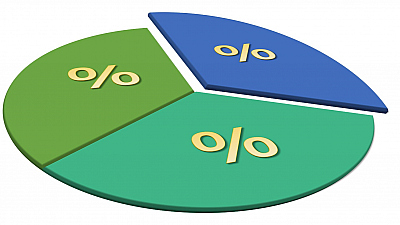Cryptocurrency exchanges are web-based platforms for exchanging cryptocurrencies against other digital or traditional currencies. They usually work 24/7, giving a constant access to trading. Depending on the characteristics of the exchanges they can be divided into three types.
CENTRALIZED CRYPTOCURRENCY EXCHANGE (CEX)
CEX are quite like normal stock exchanges. They have a central authority that governs and overlooks the transactions. Personal information is required in order to register and be able to trade. Registered users must hold accounts with the exchange.
Typically, fees are charged for the transactions. CEX have high liquidity and trading volume. Some (but not all) allow fiat-to-cryptocurrency trades, while most allow crypto-to-crypto pairings. These are the most widespread type of exchange. CEX comes in different forms.
TRADITIONAL
The traditional crypto exchanges are much like the traditional stock exchanges where buyers and sellers trade based on the current market prices of cryptocurrencies. The exchange serves as the middleman. The platform matches the buyers and the sellers automatically.
DIRECT
The direct trading platforms offer direct peer-to-peer trading. In other words, buyers and sellers trade directly with each other. This type of cryptocurrency exchange doesn’t use a fixed market price. Buyers and sellers set the exchange rate at which they are willing to make the trade and when the expectations meet, the trade is executed.
The matching is manual as buyers and sellers decide the user they would trade with. For better protection of its users the platform holds the traded amounts in escrow until both parties have fulfilled their contractual requirements.
BROKER
The cryptocurrency brokers are websites that anyone can visit to buy or sell cryptocurrencies. The price is set by the broker and includes a small commission for each transaction. Cryptocurrency brokers are similar to foreign exchange dealers. The exchange is between the buyer/seller and the broker.
The brokers websites aim simplicity and user-friendly interfaces and that is the reason why they are preferred by novice crypto traders.
Some of the largest centralized cryptocurrency exchanges are Binance, Huobi Global, Kraken, Coinbase PRO, Bittrex.
DECENTRALIZED CRYPTOCURRENCY EXCHANGE (DEX)
DEX is the type of exchange that aims to be in line with the original idea of Bitcoin. This is a peer-to-peer network that does not depend on any centralized service or organization.
A decentralized exchange does not store assets or personal data. There is no one to monitor the transactions. which are executed by an automated Smart contract. This is basically an agreement in the form of computer code that runs on the blockchain and is automatically executed once its conditions have been met.
The completely decentralized functioning of the system means better protection from hacks and cyber-attacks. The funds are in the hands of the owners so crypto traders have full control over them. There are some disadvantages to DEX. One is the lower volatility and trading volume compared to CEX. Another is the lower execution speed, which depends on the confirmation speed of the blockchain.
Some of the most popular decentralized exchanges are Uniswap, IDEX, Waves DEX, Bisq DEX and Stellar DEX.
HYBRID CRYPTOCURRENCY EXCHANGE
The hybrid exchanges aim to merge the advantages of both CEX and DEX, while avoiding their disadvantages. More specifically they combine the liquidity and functionality of CEX with the security and privacy of DEX. They are a next generation crypto exchange.
The first ever hybrid crypto exchange is Qurrex and was launched in 2018.
As every exchange (whatever the type) has its specifics, a checkup is advisable before doing any trading. One way to get to know an exchange is to go through reviews. Questions and posts from both individual users and websites can provide valuable information.
Different exchanges offer different trading fees and exchange rates, and they can defer substantially. There are different payment methods available with the exchanges. All this information is usually provided on the exchange website.
A very important thing is the verification requirements, which is the personal data required for the registration. A thing to consider is also the country restrictions, as some practices are not allowed in every country.




